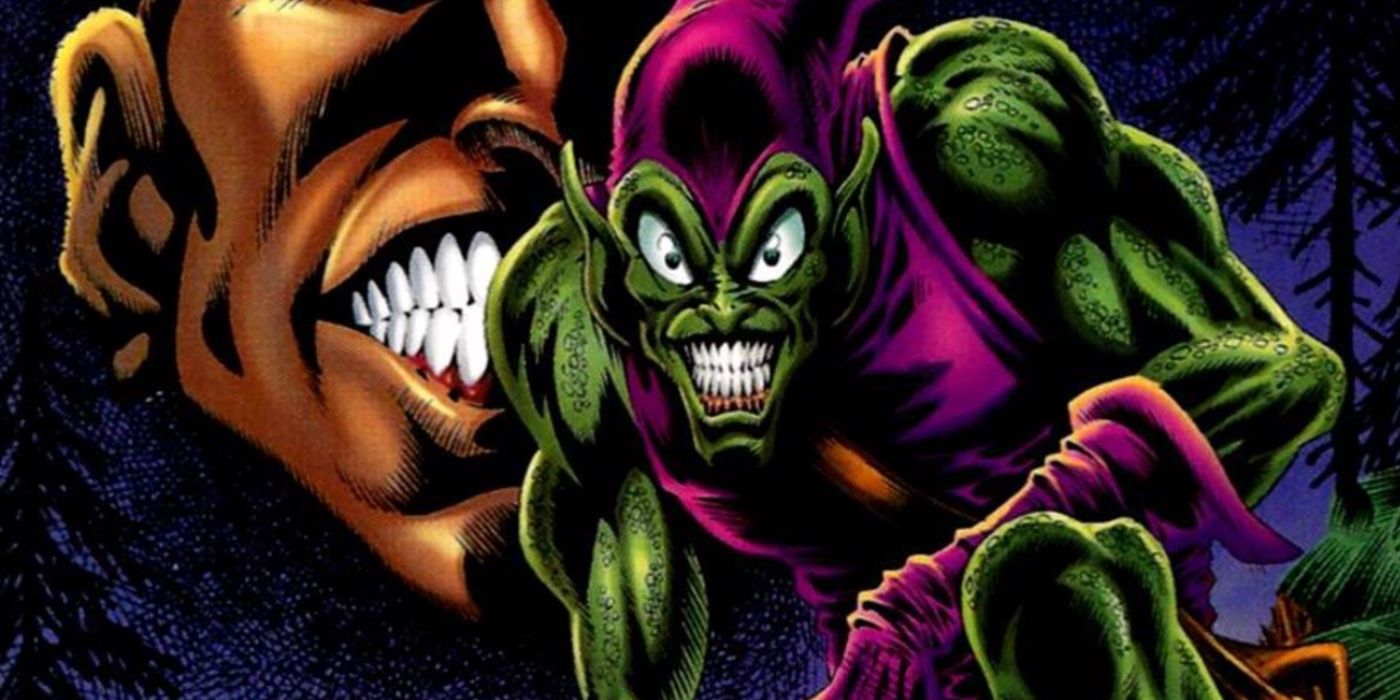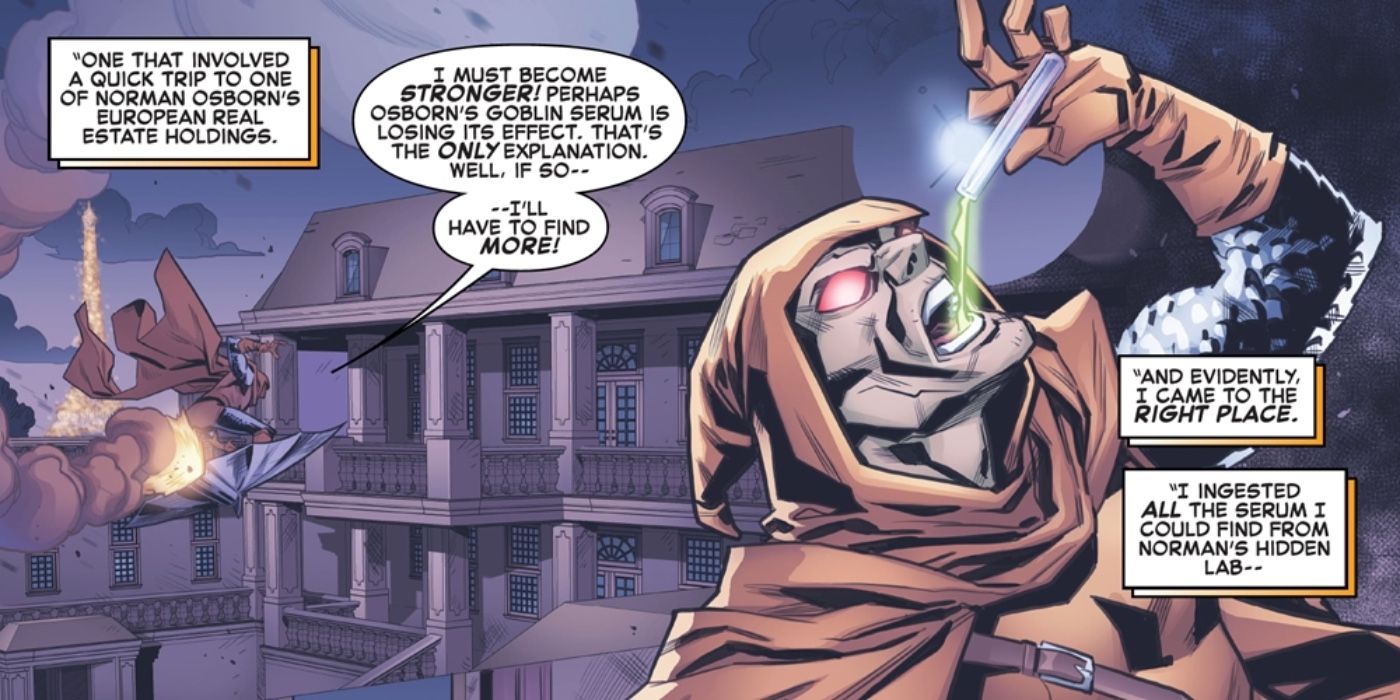
Warning! Spoilers for The Amazing Spider-Man #68 ahead!
Aside from being super strong, incredibly tech-savvy, and absolutely insane, Norman Osborn’s Green Goblin has within his arsenal a forgotten yet incredible superpower recently confirmed in Spider-Man’s latest adventure. Isolated to the specific serum Norman Osborn used to become the Green Goblin, and shared by other users throughout Spidey lore, the Goblin Formula offers not only super strength and agility, but a heightened healing factor as well that works through the human body even after someone who has taken it has died. Osborn himself has known for decades of this power, but another goblin in Peter’s life just confirmed its reliability in the new age Spider-Man comics.
In the revealing 1996 one-shot comic Spider-Man: The Osborn Journal by Glenn Greenberg and Kyle Hotz, fans learn of the true inner workings behind the scenes of the then-ongoing Clone Saga. Norman Osborn, who had been thought dead years earlier after killing Gwen Stacy and then inadvertently himself with his own glider, is alive and plotting Spider-Man’s demise. The Green Goblin wakes up in a morgue after he suffers those would-be fatal wounds, and immediately credits his survival to the Goblin Formula that granted him his powers as well as his madness. While Norman Osborn’s plan to destroy every facet of Peter Parker’s life ultimately fails, the Clone Saga itself succeeds in bringing back the original Green Goblin as being an ongoing Spider-Man villain once again after being taken out of continuity two decades earlier.
In Amazing Spider-Man #68 by Nick Spencer and Ed Brisson with art by Marcelo Ferreira, Carlos Gomez, and Ze Carlos, Ned Leeds is back and brings with him an explanation behind his shockingly unexpected return. Ned tells Peter that during his time as the Hobgoblin while secretly being controlled by the original, Roderick Kingsley, Ned sought ways to increase his power to fight off his captor. Ned discovered one of Norman Osborn’s secret Green Goblin hideouts where he found the Goblin Formula. Hobgoblin achieved the level of power he was after upon drinking the power-giving serum. Shortly thereafter, the new Hobgoblin was killed, putting to the test the Goblin Formula he just ingested, a test similar to the one Norman Osborn himself underwent decades earlier.

The Goblin Formula of Norman Osborn’s design virtually offers its user immortality, but except for the power display in the ‘90s and in its most recent appearance, this incredible power has mostly been forgotten. One of the more obvious reasons behind the Green Goblin’s power of being nearly impervious to death is because it could be argued that it is less of a “power” and more of a plot device. It is no secret that in the comic book world, it is very rare that anyone stays dead for long. The trick is, how to write a convincing resurrection plot. Once the Marvel Comics writers needed Norman Osborn to be the one behind the Clone Saga, the Green Goblin gained a healing factor that had apparently been there all along, and not a moment before.
The benefit to long form shared continuity is that those methods of bringing a character back to life can be recycled to fit into current stories. The big twist behind Spider-Man's greatest foe coming back to life after being dead for more than twenty years outside of the comics could be perceived as being a bit forced and undeserved as fans were not aware of this ability. However, Osborn’s resurrection laid the groundwork for Ned Leeds to believably come back to life in the same, already established, fashion. Not only does The Amazing Spider-Man confirm Green Goblin’s forgotten yet incredible power, the series also validates that particular comic book resurrection technique by applying the logic of continuity to newer adventures.
from ScreenRant - Feed https://ift.tt/3AW37zV

No comments: